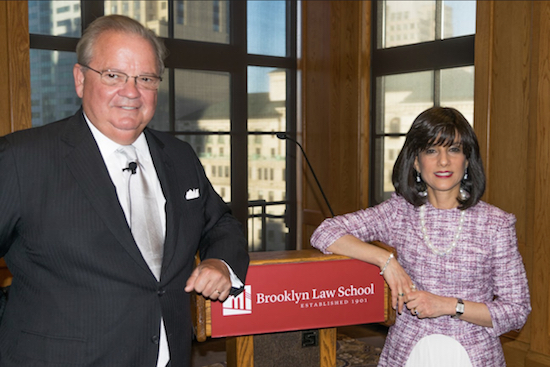Brooklyn Law School honors Rachel Freier as first Hasidic woman judge

Brooklyn Law School (BLS) has always been a forerunner of diversity, and on Wednesday night it celebrated that when the school honored the country’s first-ever Hasidic female elected official — Judge Rachel Freier.
“Our law school has been a gateway to opportunity for generations,” said Dean Nicholas Allard. “From our founding more than 116 years ago, our doors have been wide open. We are a law school whose legacy has been shaped by pioneers and trailblazers who have gone on to lead in the profession as well as in government, public service and business.”
Judge Freier was introduced not only by Allard, but also by professor Aaron Twerski, state Assemblymember Dov Hikind and Federal Court Judge Claire R. Kelly. After a discussion between Allard and Freier, the dean presented her with a ceremonial gavel.

Brooklyn Boro
View MoreNew York City’s most populous borough, Brooklyn, is home to nearly 2.6 million residents. If Brooklyn were an independent city it would be the fourth largest city in the United States. While Brooklyn has become the epitome of ‘cool and hip’ in recent years, for those that were born here, raised families here and improved communities over the years, Brooklyn has never been ‘uncool’.